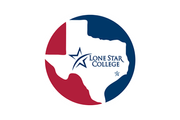
Philadelphia-based car subscription startup Go expanded service to Houston and three other cities in January, less than three months after launching.
The expansion brings Go’s short-term car subscription service to Dallas, Atlanta and Charlotte, North Carolina, as well as Houston. Go officially launched in October in the metro areas of Miami-Fort Lauderdale, Northern New Jersey, Orlando and Philadelphia.
“We like to look at markets where we know demand is high for this sort of thing,” Go CEO Michael Beauchamp told the Philadelphia Business Journal. “And the good news is that for our sort of offering, making cars cheaper and easier to get, demand is high everywhere.”
Go offers up to three-year terms for a car with a flat monthly subscription rate. The startup owns its fleet of several thousand vehicles, and options range from standard car brands like Toyota to luxury brands like Mercedes-Benz.
The startup charges a $495 restocking fee for customers who want to return their car before the three-year term is up. The restocking fee is waived if the customer keeps the car the full three years.
Go selected its new cities based on demand, as well as the proximity of the markets to each other, Beauchamp said. With Dallas and Houston relatively close and Atlanta and Charlotte within driving distance, it reduces the logistical hurdles of moving cars from one market to another, he said.
The expansion involves the purchase of more vehicles, but there won’t be much hiring in its new markets. Go has five employees now, and it plans to ramp up hiring to add 30 to 40 more staffers — almost exclusively at its Philadelphia-area headquarters. Go outsources delivery and vehicle storage to third-party transportation logistics company Acertus, which reduces the startup’s need to have “boots on the ground” in each of its markets, Beauchamp said.
“What that means is that we don't have to go find the physical infrastructure in each location; we don't have to go hire and train a fleet of associates in every location,” he said. “So that makes it a simpler business for us to scale.”
The biggest hurdle to growth has been the availability of vehicles, Beauchamp said. New and used car dealers alike have had inventory challenges since the beginning of the Covid-19 pandemic, and automakers expect product shortages to continue to impact car manufacturing due to the ongoing microchip shortage, Automotive News reported.
Most of Go’s available fleet are Nissans, and the company has been waiting months to get vehicles from other automakers, Beauchamp said. Potential customers come to Go’s site in search of a car and are disappointed to find that the one they want won’t be available until at least February, he said.
Go, which has just under 300 users presently, was founded in 2020. The startup raised a $41 million seed round in October to purchase its fleet of vehicles and hire staff. The company plans to kick off raising a Series A by the end of the first quarter and hopes to expand into new markets around mid-2022, Beauchamp said, but Go will wait until it has a better eye on future supply of vehicles before expanding further.
“Really the core focus is executing this business properly before we try to grow too quickly, too fast,” he said. “That's when mistakes start to happen.”





